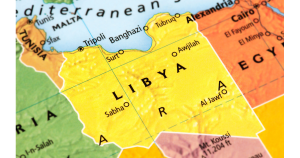Brussels-Rome, 9 December 2019
Today, on 9 December, the International Day of Commemoration and Dignity of the Victims of the Crime of Genocide and the Prevention of this Crime marks the adoption of the Genocide Convention. Seventy-one years ago, the General Assembly of the United Nations declared that genocide is a crime under international law. Through the Genocide Convention, member States have pledged to prevent, punish and – by extension – not commit genocide.
This week is a significant one in the history of the Genocide Convention, with the commencement of legal proceedings at the International Court of Justice for the case brought by The Gambia alleging Myanmar’s violation of the Convention for genocide committed against the Rohingya. “This case is a significant one on two levels”, said Alison Smith, NPWJ’s International Criminal Justice Director. “First and foremost, it is a recognition of the suffering of the Rohingya people and a condemnation of violations against them not just by The Gambia but by members of the Organisation of Islamic Coooperation, on whose behalf The Gambia is also acting”.
“Beyond that, it is significant because it is the first time a case alleging violation of the Genocide Convention has been brought by a State that has not been directly affected by the violations it is alleging”, Ms Smith continued. “By taking this principled approach, The Gambia is showing all States Parties to the Genocide Convention that it is not sufficient to wring their hands and say ‘never again’. There is an avenue for them to stand up and show their commitment to the fight against impunity for this grave crime and that avenue is the International Court of Justice.”
The ICJ only deals with inter-State disputes, or acts on a request for an advisory opinion from a body authorised to do so, like the UN General Assembly. As such, ICJ decisions are only binding on States, not on individuals. “We need to continue to look for ways to honour the memory and dignity of victims of the crime of genocide in two ways”, said Ms Smith. “First and foremost, we need to find ways to prevent the crime, not only through early warning systems but through taking concrete action to intervene when those systems alert us to a potential system unfolding. Second, together with victims and their communities, we need to use all possible pathways to access justice and obtain redress for those victims, at the national, regional and international level. On this day,” Ms Smith concluded, “we stand beside victims and pledge to play our part in preventing and punishing this crime.”
For further information, contact Alison Smith, Director Of International Justice Program, on asmith@npwj.org or Nicola Giovannini, Press & Public Affairs Coordinator, on ngiovannini@npwj.org org.
Check also the special page on the Rohingya Genocide Case at the ICJ



